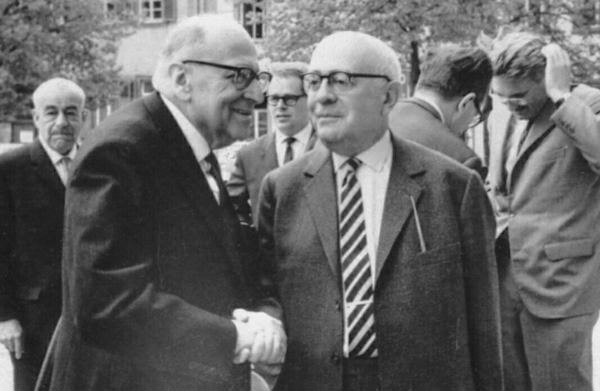Conservative commentators often lay the blame for our social and political ills on a handful of philosophers, alternately described as “cultural Marxists,” critical theorists, or postmodernists. Glenn Beck has attacked postmodernism for the erosion of morality. Mark Levin blames the theories of Herbert Marcuse and the “Franklin School” [sic] for the rise of critical race theory and intersectionality. Steve Hilton on Fox has faulted critical theorists including György Lukács and Marcuse for the decay of academia. According to a standard view on the right, critical theorists are responsible for undermining capitalism, stoking cultural conflict, and calling into question the Enlightenment’s promise of freedom, while unsettling its moral and universal underpinnings.
It is true that these thinkers sought to interrogate the Enlightenment, capitalism, and the American way. But conservatives often fail to grasp the degree to which critical theory—if only in a bastardized form—is no longer a threat to the established order, but fully part of that order. Once cutting-edge ideas have come to pervade not only academia, but corporate America, the media, and the government. The result is a replay of the predicament diagnosed by critical theorists themselves more than half a century ago, when doctrines of freedom furnished the basis for new forms of oppressive power.
Conservatives should take note. Rather than pinning our society’s problems on critical theorists, they should use the latter’s insights to interrogate progressive dominance.
Marcuse, Theodor Adorno, Max Horkheimer, and Jürgen Habermas were all part of a movement that shifted the focus of Marxist theory from economics to culture. This critical approach was developed following the failure of Marx’s teleological claims about the formation of the proletariat as a class “for itself”: that is, aware of its collective interests and prepared to act collectively in pursuit of them.
